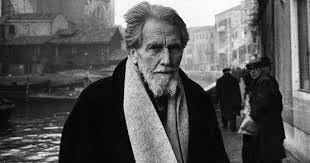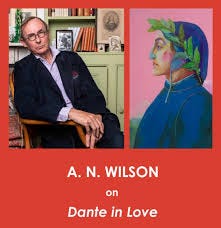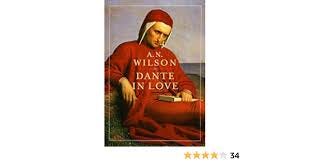On July 7th, the Friends of Little Gidding assembled in the famous little village immortalised by T.S.Eliot in his poem.
It was here that Nicholas Ferrar and his family led a quiet, religious life during the 17th century, reading the offices of the Book of Common Prayer and devoting themselves to good works and contemplation. The Royal Martyr, King Charles I, visited them after his defeat at the Battle of Naseby and, since nineteenth century times, the place has revived as one of pilgrimage. Eliot concluded his Four Quartets with a poem of the name, and it is the culmination of his faith-journey, as well as being the last major poem he ever published.
I have always believed that Four Quartets were among my most treasured poems, but in preparation for a talk at this year’s Little Gidding Summer Festival, I found myself dismayed to find that… what? Something was missing? Compared with The Waste Land, which will always remain one of my very favourite poems, and which I think achieves a truly Dantean greatness, there seems something a bit watery about the Quartets. I dared to express this thought in my lecture, and, to my surprise, the very kind and intelligent audience did not lynch me, though many disagreed with my words. It was a good, intelligent audience, partly made up of the T.S.Eliot Summer School, who were bussed over from Oxford in enormous charabancs, and partly by the T.S.Eliot Society which - despite my misgivings about the later Eliot as a poet, I joined. I now wonder whether my misgivings have been caused by reading Ezra Pound’s CANTOS
. If you have not tried them or have only dipped, I can not recommend them too highly - they are, by turns, funny, shocking, outrageous, hauntingly beautiful, and, of course - because they chronicle what has happened to Europe and the world in the 20th century, profoundly sad.
My lecture was entitled “Eliot and Dante”, and I began -
I quote Charles Peguy, who is quoted at beginning of After Strange Gods : Le monde modern avilit. The modern world degrades. It is not the only thing which degrades. Something happens in Eliot’s work where it biodegrades or spoils itself. Eats itself. I have only clearly come to this perception while preparing this talk, and yet it is a truth which now seems to me as clear as day. You have asked me to talk of Eliot and Dante. Dante was a poet at home in his Christian skin,
and enjoyed – I am not talking of Dante the man, but of Dante the poet – enjoyed the conflicts which were entailed in being a Christian – the conflict between the sublimity of the ultimate vision and the task of writing; between the demand of art and the difficulty of making faith, and its failures, the contemporary Church and its utter awfulness – into the subjects of poetry. In the Eliot who wrote The Waste Land, - though he had not yet come to faith - there is a truly Dantean confrontation with the horror of contemporary existence. By one of the most supreme paradoxes in the history of literature, when he became a Christian, he lost the ability to do this.
His enormous prose output tells some of the story – he turned himself into the public spokesman of the spikier Anglo-Catholic position within the Church of England, the church-warden in the four-piece suit, called upon to address Church conferences or to meet bishops over the port and cheese, as he protested against the awfulness of the New English Bible, or wrote plays for the Canterbury Festival. Moreover, as he put on his bowler hat each morning, went to Mass at St Stephen’s Gloucester Road, and then on by tube to Russell Square, he was the successful publisher, the king of the poetry-publishing world. And sitting on the tube, contemplating the faces of his fellow-commuters, he could compose the old Eliot music which is so unforgettable, so instantaneously memorable –
O dark, dark, dark,. They all go into the dark,
The vacant interstellar spaces, the vacant into the vacant,
The captains, the merchant bankers, eminent men of letters…
And we all go with them, into the silent funeral,
Nobody’s funeral, for there is no one to bury.
So hypnotic is the Eliot music that we do not notice, and I almost wonder whether he noticed, at times, while composing Four Quartets, that something was missing. Only almost. He clearly DID notice, which, surely, is the reason why after Four Quartets, he wrote almost nothing else, though the Quartets were competed by the time he was fifty-five – think of Goethe, writing the ending of Faust when he was over 80, or think of Yeats writing to the end., almost every poem daring to be bad, and so often triumphing and being brilliant. Something happened with Eliot. And the comparison with Dante is instructive.
Keep reading with a 7-day free trial
Subscribe to A.N. Wilson to keep reading this post and get 7 days of free access to the full post archives.








